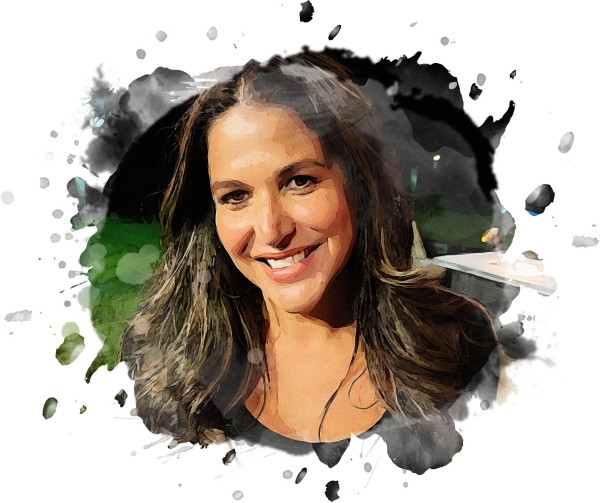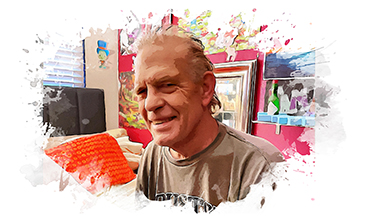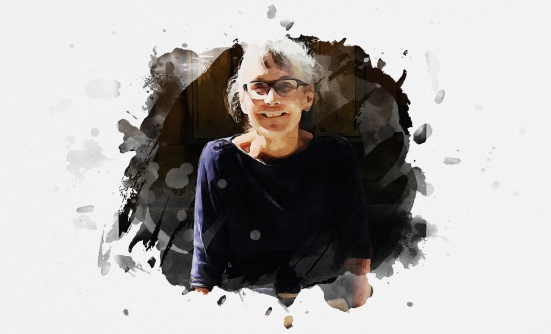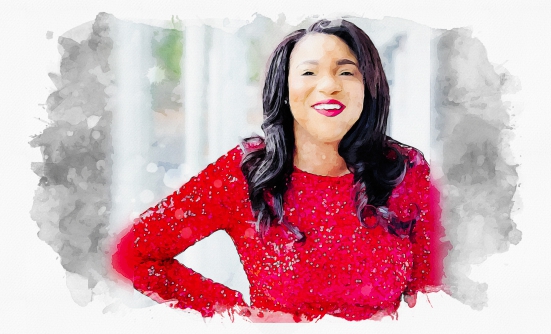
I was on the receiving end of a cryptic phone call from my mom in the summer of 2020. She told me that she had taken a test and it came back a little elevated for “this BRCA thing.” I didn’t know what it meant for her—or for me.
A few weeks later, I was at the beach with a friend who is a breast cancer survivor. I told her about the call with my mom, and her eyes popped open. “Jocelyn, that’s serious,” she said. And she was right—individuals with the BRCA2 gene mutation have a greater than 45% chance of developing breast cancer by age 70. Similarly, the BRCA1 mutation poses a breast cancer risk of 55% to 72% and an ovarian cancer risk of 39% to 44%.1
I met with a genetic counselor and decided to get tested, too. My results showed that I also had the BRCA2 gene mutation. Everything after that was a whirlwind, and it’s not in my nature to just sit around and wait for fate. I proactively met with a breast surgeon, who sent me for a breast MRI. That scan revealed ductal carcinoma in situ, the earliest form of breast cancer. She encouraged me to act quickly and suggested that a preventive double mastectomy was my best option due to my genetic cancer risk.
As I’m rushing between doctor appointments while also trying to keep my head straight during that first pandemic summer, my memory was struck by something my friend said to me that day at the beach. She told me about losing sensation after her double mastectomy and how that was a difficult part of reconstruction.
Think about that for a minute—not feeling the warmth of a hug from a loved one, the comfort of a thick sweater on a crisp evening by the ocean, or even just knowing if your bra strap has slipped down. Feeling matters. I thought that chest numbness after a mastectomy (the result of nerves being cut when breast tissue is removed) was just something women had to accept and live with.
One Friday night on the couch, I felt compelled to start researching again. I went down a rabbit hole of breast cancer survivor Facebook groups, and I discovered that there is a surgical technique to reconnect nerves and potentially restore sensation in the breasts after reconstruction.
I searched for surgeons who were trained in the technique and experienced using nerve grafts to reconnect nerves during breast reconstruction. In that process, I found Dr. Jonathan Bank, a plastic and reconstructive surgeon who sees patients in Great Neck, NY, and scheduled a consultation. I was struck by his message that it’s “not just about breast cancer, but about love and compassion, hope and understanding.” I felt seen.
I'm fortunate today to be able to feel the enveloping power of a hug or simply know if a shower is too hot.
In October 2020, I underwent a double mastectomy and immediate DIEP flap reconstruction with breast neurotization. There are still some areas of my chest that don’t feel quite the same as they did before my mastectomy, but I’m fortunate today to be able to feel the enveloping power of a hug or simply know if a shower is too hot.
I’m sharing my BRCA2 and breast cancer story now because I want other women to know that they have options, and that they deserve to feel whole again. Feeling matters—in all definitions of that word. To anyone out there on a breast cancer journey, follow your gut, whether that involves finding a care team you feel truly seen by or finding the best type of reconstruction for you.
Reference
- National Cancer Institute. BRCA Gene Mutations: Cancer Risk and Genetic Testing. www.cancer.gov/about-cancer/causes-prevention/genetics/brca-fact-sheet#:~:text=Breast%20cancer%3A%20About%2013%25%20of,age%20(2%E2%80%934).
You May Also Like:
Family Matters: What a Breast Cancer Diagnosis Means for Your Loved OnesBy Frank dela Rama, RN, MS, AOCNS, AGN-BC
The ESSAY column in Conquer is devoted to lifting the voices of people touched by cancer.
Read more essays or submit yours.















